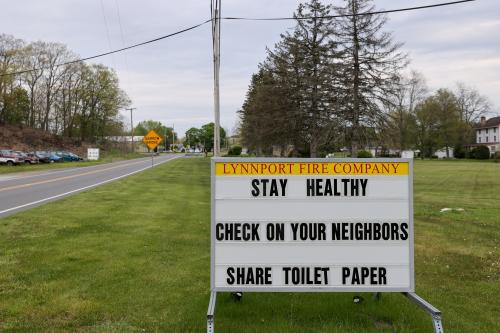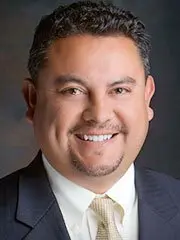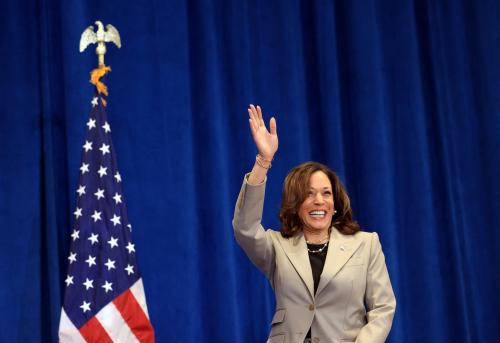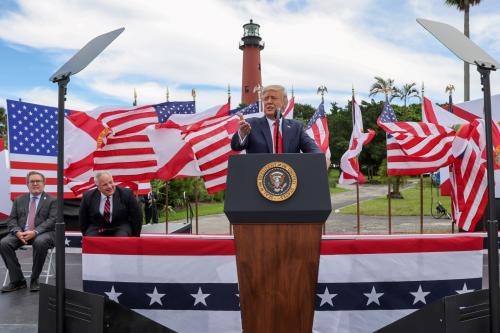Although overshadowed in the national political discourse by discussions about the importance of the economy, immigration, or abortion, voters have expressed that health care continues to be one of their highest priorities. In fact, a May 2024 poll by Pew found that health care was the third-highest issue priority for voters, garnering a robust 57% from respondents.
The salience of health care bodes well for Biden since he outperforms Trump on health care (39% trust Biden on health care, compared to 34% who prefer Trump), as seen from an ABC News/Ipsos poll conducted last month, consistent with most polls that show a similar modest advantage for Biden on the matter.
The importance of health care to voters is magnified when we consider that it is one of the factors compounding the economic stress Americans are facing, resulting in inflation and the rising cost of living outpacing all other issues in poll
Most voters include the rising health care costs they are experiencing among other critical purchases they have to make. For example, a recent KFF tracking poll shows that health care tops the list of basic expenses Americans worry about—even more than gas, food, and rent. In fact, nearly three in four adults in that KFF poll underscore that they’re concerned about paying for unexpected medical bills and other health costs.
Health care and Latino voters
Health care resonates as a policy issue to many sub-groups of the larger electorate, including Latino voters who continue to trail other racial and ethnic groups in access to health insurance and medical care. A recent UnidosUS poll found health care to be third among policy priorities for registered Latino voters, behind only the rising cost of living and jobs/the economy.
When Latino voters are asked to provide clarity on what they mean when they identify health care as a top priority, the cost of health care (premiums, deductibles, etc.) is the most commonly cited definition, followed by prescription costs, and then quality of care.
Although discussions regarding Latino voting behavior focus largely on the potential shift of Latinos toward Trump and the Republican Party, interestingly, health care tends to be a particularly relevant policy issue among Latinos who are moving to the left in their partisan preferences. UnidosUS finds that a sizable 38% of Latino self-identified Republicans reporting greater openness to Democrats in 2024 identify health care as a top issue of concern, with premiums and prescription drug costs most often identified as the root of these Republicans’ concerns.
Sharp differences in policy priorities for voters to consider
While its name doesn’t suggest landmark health policy, the Inflation Reduction Act, or IRA, included a provision allowing Medicare to negotiate prices for some of the most expensive drugs. The IRA also capped the total out-of-pocket spending for prescription drugs for all Medicare patients, dropping from roughly $3,500 to $2,000, while capping the price of insulin for those with diabetes at $35 a month. These are policy actions that can directly address the concerns of voters. The challenge for Biden continues to be connecting his policy advancements with voters and more effectively communicating these important reductions to health care costs.
The Affordable Care Act will continue to be a factor for voters some 14 years after it was passed by former President Obama. The popularity of the ACA makes this a dangerous environment for Republicans, as former President Trump has suggested he would repeal the law if elected. The KFF poll found that more adults want to see the program expanded rather than scaled back, and there has been a recent surge in insurance enrollments, with a record 21.3 million people signed up for coverage already in 2024—a quarter of those being new consumers of health insurance. Compounding the political pressure for Republicans in 2024, this increase in enrollments has been higher in red states, with annual increases of 80% in West Virginia, 75% in Louisiana, and 62% in Ohio, according to the Centers for Medicare & Medicaid Services.
Although former President Trump has said he wouldn’t cut Medicare spending, Democrats will likely seek to associate him with other Republicans who support constraining the program’s costs. However, raising taxes on people making more than $400,000 a year to shore up Medicare’s finances is one idea that received strong backing in a recent poll by the Associated Press and NORC Center for Public Affairs Research.
As November 2024 approaches, other issues will likely continue to capture national headlines. Health care, however, just might be the issue that ultimately decides the election outcome. The candidate who can persuade the American public that they have the best plan to reduce the costs of health care expenditures will emerge victorious and has the opportunity to tackle the rising costs of health insurance, prescription drugs, and other medical costs.
-
Acknowledgements and disclosures
BSP Research conducted data collection on behalf of UnidosUS for this survey. In addition to his work at Brookings, Dr. Gabriel Sanchez serves as Director of Research for BSP Research.







Commentary
Health care costs are a top concern for voters in the 2024 election
July 3, 2024